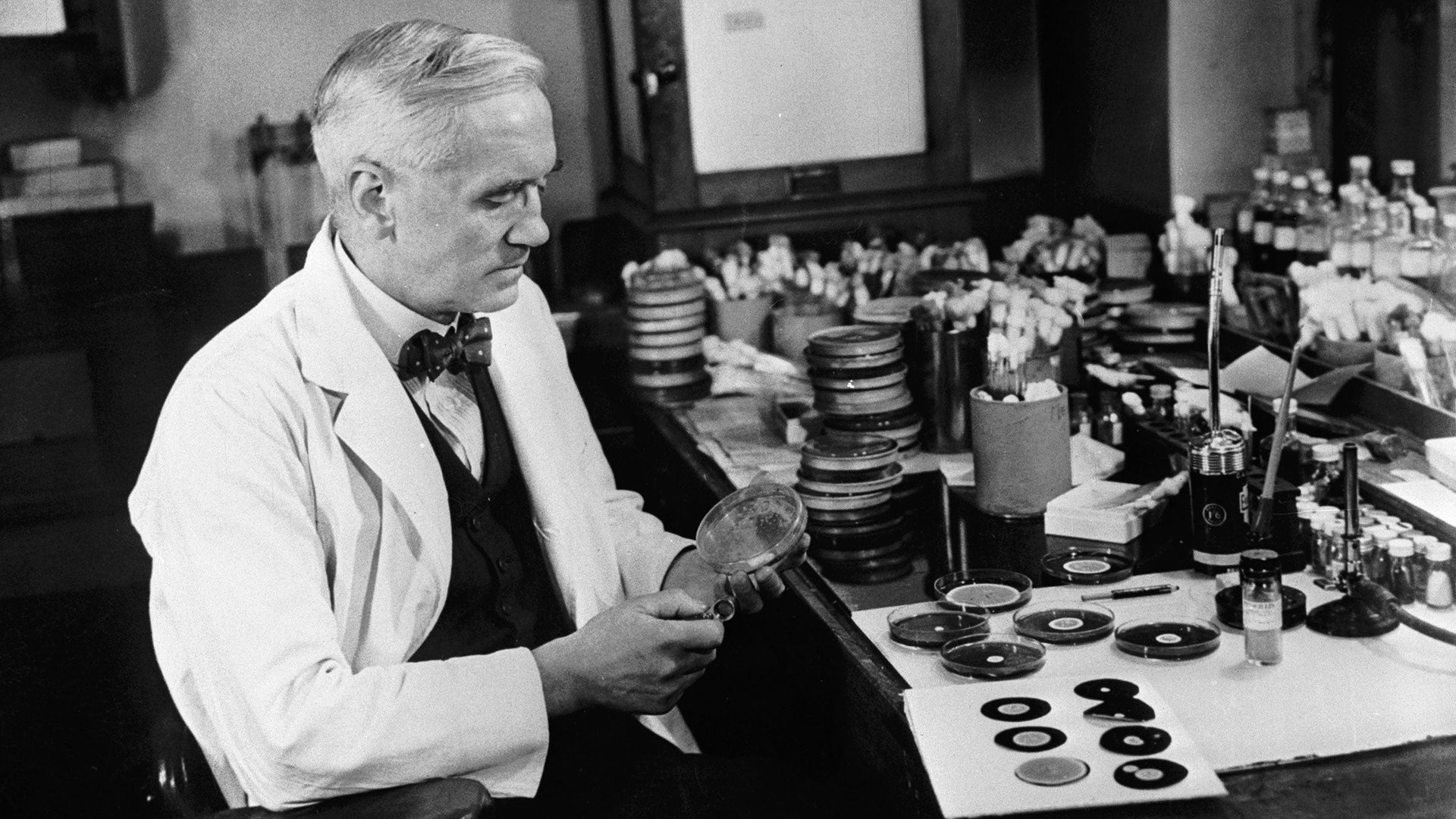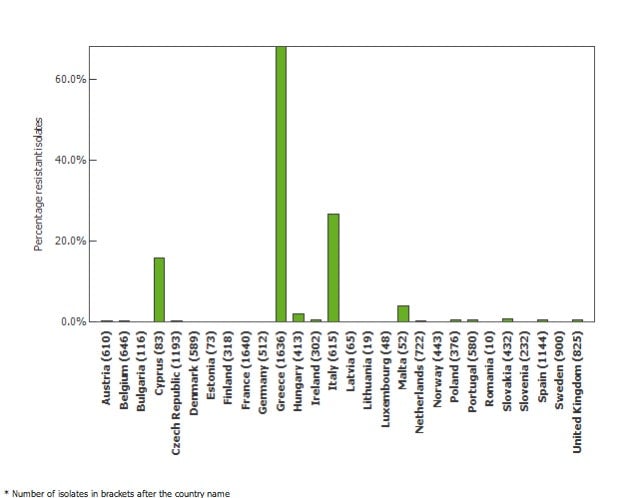Superbugs are spreading in Europe as antibiotics are overused
Superbugs are spreading at an alarming rate in Europe as antibiotics used to fight even common infections are growing increasingly ineffective though widespread overuse and misuse.


Superbugs are spreading at an alarming rate in Europe as antibiotics used to fight even common infections are growing increasingly ineffective though widespread overuse and misuse.
New data is out today that show antibiotic resistance to bacteria such as klebsiella pneumoniae and escherichia coli (E. coli) is rising. The use of last-resort antibiotics like carbapenems increased significantly in European countries between 2007 and 2010, according to the European Centre for Disease Prevention (ECDC), but they don’t work nearly as well as they used to.
Here’s a graph from the ECDC showing carbapenems resistance in various countries of people suffering from klebsiella pneumoniae. Those in Greece, Italy, Cyprus, and Malta are particular hard-hit:

Sally Davies, the UK’s chief medical officer, says a growing number of common ailments are no longer treatable with antibiotics. Penicillin is useless against wound infections caused by the bug staphylococcus, while a new form of untreatable sexually-transmitted gonorrhea is alarming doctors. She says that in 2000, 4% of serious bloodstream infections of E. coli were resistant to antibiotic ciprofloxacin, but today 21% of cases are resistant.
Ignorance about antibiotic use by both patients and doctors is exacerbating the problem. Patients fail to take full courses of antibiotics, which allows the surviving bacteria to grow more resistant and sometimes spread to others. Some doctors over-proscribe antibiotics even when they’re useless such as against viral infections. The more antibiotics you take, the more bacteria become resistant to them.
Danilo Lo Fo Wong, a senior advisor on antimicrobial resistance at the World Health Organization (WHO), says the problem with doctors is often related to a lack of time and money: “Doctors are so overburdened that it’s much faster to proscribe antibiotics than to order tests to see if it makes sense to proscribe antibiotics.” In some European countries, patients can even buy antibiotics over the counter.
Penicillin antibiotics, first developed in the 1940s, were considered miracle drugs. Today it’s a different story. Overuse of penicillin has made it less effective. Pharmaceutical companies have jumped in to invent new antibiotics, but now the overuse of these drugs is leading to their growing ineffectiveness as well.
What’s changed recently is a willingness by pharmaceutical companies to invest in antibiotic medicines. Even as resistant bacteria increasingly spread through the global food chain and via international travel—and the World Health Organization calling antibiotic resistance one of the three greatest threats to human health—pharmaceutical companies are shying away from producing antibiotics because the cost and time to make them isn’t worth it.
Margaret Chan, director general of the WHO, painted an alarming picture at a conference earlier this year. She said that bacteria were becoming so resistant that all antibiotics could eventually become useless, including drugs developed to treat everything from malaria to simple cuts. “Things as common as strep throat or a child’s scratched knee could once again kill,” she said.